- Home
- Darrell Maloney
A Troubling Turn of Events Page 3
A Troubling Turn of Events Read online
Page 3
“Nope. Not a one of them. Why?”
“He took them with him. Do you think that means he’s planning to use them again?”
Tom whistled under his breath, then pondered her observation.
“I hope not. I hope he just took them because they had his fingerprints on them.”
“We still need to find the rest of the body.”
“Shouldn’t be hard. Let’s just follow the blood trail.”
The torso, it turned out, was in the middle of the back yard. There wasn’t much left of it that wasn’t ashes.
An empty gasoline can lay on its side nearby.
“Why would he take the time to burn the torso? And if he wanted to destroy the evidence, why’d he leave the hands and feet in there?”
“I don’t know, honey. But I can give you a guess.”
“The last time you gave me a guess I vomited.”
“Right. Maybe I’ll keep it to myself this time.”
“No. I need to know.”
“These days people burn the bodies of loved ones all the time.
“If he’d let the body bleed out onto the bed he’d have been able to move it without leaving a very obvious blood trail. He could have moved the hands and feet outside, along with the bloody mattress, and could have burned everything down to ashes in just a couple of hours.
“If he’d done that, if he’d been smart about the way he handled the body, you probably would have done your welfare check, found the pile of ashes in the back yard, and never investigated.
“You likely would have assumed she died by her own hand and was cremated by her family or friends. You likely would have never tagged this as a homicide or even opened a suspicious death case.
“All he had to do was do a better job of disposing of the body and he’d have gotten away with this.”
“But he didn’t. Why didn’t he, Tom, and please don’t say what I think you’re going to say.”
“What do you think I’m going to say?”
“That he burned the torso to destroy evidence. Maybe the DNA evidence he left behind inside the body. But that he left behind the hands and feet for us to find.”
Tom forced a smile.
But not because he found anything funny.
“You, young lady, are getting way too good at reading my mind.
“I think he wanted us to find some of the body to taunt us. To show us he’s proud of what he did and plans to do it again.”
“God, I hope you’re wrong.”
“Me too, honey. Me too.”
“Tom, what about the ring?”
She was referring to a ring of footprints that completely encircled the burned body.
Someone presumably walked around the body not once, but many times.
Enough times to make something of a rut in the soft dirt.
“I don’t know, honey. It looks like it wasn’t enough for him to burn her.
“It almost looks like he danced around her as she was burning.”
-6-
“Sara, I want you to go get Charlie Sikes.”
“But he’s on night shift. He’s probably at home sleeping.”
“I hope so. That’ll make it much easier for you to find him.”
“What should I tell him?”
“Tell him what we’ve found here. And tell him he’s not on night shift any more.”
“He’s not?”
“He’s not. Tell him he’s on day shift. And for the time being the two of you are partners.”
“Partners? Tom, with all due respect…”
He looked her right in the eyes and said, “Don’t argue with me on this.”
“But Tom, if we double up we can only cover half as much ground. We’re having a hard time patrolling the whole county as it is…”
“That’s okay, because you’re off patrol. For the time being you and Charlie’s sole responsibility is working this case.”
“But… we’re supposed to be serving and protecting the citizens of Kerr County. Taking us off patrol is going to leave them vulnerable.”
“Sara, listen to me. The citizens of Kerr County have no bigger threat than a madman who runs around torturing and killing women and cutting them into pieces.
“Now, we don’t know for sure he’s gonna do this again. Maybe it’s an old boyfriend who wanted to have the final word in an old argument. Maybe it was a marauder who robbed and raped her. Maybe he headed for the hills and he’s not even in the county any more.
“But until we’re sure that’s the case we’ve got to assume he’s still out there.
“And if he’s still out there, the best way we can serve the citizens of Kerr County is to find him and neutralize him.
“This has to be our first priority, at least until we determine the threat has passed.”
“Charlie’s not gonna like it.”
“Look at this face. Does this look like a face that cares what Charlie likes or doesn’t like?”
“What are you going to do?”
“I’m going to stay here and log everything.”
There weren’t many bona fide crime scenes in Kerrville any more.
Oh, there were a lot of death scenes.
But the vast majority of them were obvious suicides.
Since Tom and his deputies had no working cameras each genuine crime scene had to be described, at great effort and in great detail, in old fashioned log books.
Tom knew he’d be there for hours.
He’d have to break the murder room into sections: the area around the right foot, including a detailed description of the foot and ankle itself.
Same for the left foot, then for each of the hands.
He’d make another entry just for the mattress, describing in detail the approximate dimensions of the blood stain and the approximate number of pints of blood he thought would cause such a stain.
Another entry would describe the damage the saw caused to the mattress.
It was in that entry he’d render the opinion the damage was caused by a chainsaw.
And that the victim was still alive at the time.
From the death room he’d work his way outward. Each room involved in the crime would be a supplemental crime scene, each one designated with its own number in his log book.
It was going to be a maddeningly slow process.
“Crime Scene 1: Master Bedroom,” for example, would encompass thirty pages of notes, descriptions and sketches.
“I’m gonna be here awhile,” he told Sara as she prepared to leave him.
“What do I do with Charlie when I pick him up?”
“Tell him not to give you too hard a time. Tell him this was my idea.
“Then bring him here.”
“Yes sir.”
She turned on her heels and started to leave but Tom stopped her.
“Sara?”
“Yes sir?”
“You said you got a good look at the guy. Should I assume you’d recognize him again?”
“After seeing what he’d done, that face will be branded on my brain for the rest of my life.”
“When you leave I want you to roll up your windows and lock your doors.
“If you see him, don’t try to arrest him on your own. Just keep him under observation and call me. I’ll come running. Once I get there we’ll take him down together. Understand?”
“Yes sir.”
When she walked out Tom inspected the rest of the house looking for the tools the killer used.
He found none of them, but he found something else of value.
It turned out Katie had running water. Most people in the county got their fresh water from the Kerrville Water District before the blackout.
The water plant went down when its pumps and control center were all shorted out. Since then its customers got their water by dipping it out of the Guadalupe River and boiling it, or by catching the frequent rains which went through the area.
Only a small percentage of the residents who liv
ed outside the city but inside the county had working wells on their property.
Some operated by electric pumps and most of those were down as well. Others used good old fashioned windmills.
Katie had a working windmill. Fresh water was no problem for her.
Apparently the killer knew this, for he’d used the bathroom sink to wash up.
Tom knew this because he’d never bothered to drain the sink. It was still full of bloody water.
On the floor next to the sink were a damp towel and a crumpled pile of clothing.
Man’s clothing. Size 32 pants, size medium shirts.
Soaked in Katie’s blood.
From the beginning he and Sara had considered the mysterious man a likely suspect.
But since he wasn’t covered in blood it was possible he was just an innocent passerby.
This discovery made that possibility less likely.
-7-
John Castro had wondered a lot about the man they called “Loco Julio” since they’d met more than a week before.
He’d been cooling his heels on a bench along the banks of the San Antonio River when the sprite little man called from a balcony nine floors above him.
“Hey, you on the bench!”
Now, John heard the words, clear as a bell.
But he didn’t think the voice was referring to him.
Yes, he was sitting on a bench.
But there were several benches around. One of the very best things the Riverwalk Committee did, when there was a Riverwalk Committee, was to provide places for weary tourists to rest.
He could see four other benches within his line of sight, and three of them had people on them.
Perhaps the main reason he didn’t look around, though, was that John hated rude people.
He was the “Excuse me, I’m sorry to bother you, but can you help me…” kind of guy.
The voice came again.
“Hey! Hey, you on the bench!”
John had sighed, looked up, and laid eyes on Loco Julio for the very first time.
By studying the man above him, John was obviously taking too long to respond.
“What are you, deaf or something?” the man yelled again. “I’m talking to you.”
Yes, sir. How can I help you?”
“How can you help me? How do you think you can help me? You can hook up my bucket. I’m not standing here for my health or to get a sun tan, you know…”
As he spoke he shook a rope in his hand.
No one would blame John for flipping the little man off and walking away.
Most people would have.
But John was courteous to a fault, and knew how grumpy and grouchy old people could be.
So he dutifully tied the rope to one of several Coleman coolers lined up neatly against the building.
He winced when he saw the old man haul up the cooler, tugging hand over hand on the rope.
Winced because the man was obviously old, obviously small, and didn’t weigh much more than the cooler.
John did some quick math.
Five gallons of river water, at eight pounds a gallon. That was forty pounds, more or less, plus a handful more for the cooler.
Yet the little leprechaun of a man couldn’t weigh more than a buck twenty, tops.
“Want me to carry those up for you?” he called out.
“No, I don’t want you to carry them up for me, you snotty-nosed punk. Don’t you think I’m capable of hauling my own damn water? I should come down there and beat your ass.”
John bit his tongue and waited for the rope to come down a second time, then tied it to the next cooler.
He found the whole incident bizarre, and at the same time funny.
And he resolved to climb up the stairs to the ninth floor of the Palacio Del Rio Hotel and meet the bossy little man to find out what his story was.
He was distracted at the time by a woman named Toni, who presented him with a murder case which had a higher priority.
And he never got back to Loco Julio.
Not until today.
He checked on Toni and her neighbors at another nearby hotel, then walked over to the Palacio Del Rio.
It, like all the other hotels on or near the Riverwalk, shut down when the blackout struck.
A couple of the other two and three story hotels tried to stay open, but it was a hopeless cause. None of the equipment worked, bills couldn’t be paid, and guests couldn’t be kept track of. By the second day the last of them closed, probably for good.
That wasn’t to say they weren’t occupied.
These days they were all full of squatters up to the second or third floors.
A few squatters who were young and energetic lived a little bit higher but they were typically people who didn’t mind a little extra exercise in exchange for privacy.
Some of them had a whole floor to themselves.
John never heard of anybody who lived on the ninth floor of any of the hotels.
It took a lot of strength to climb nine flights of stairs day in and day out.
But that explained why he hauled his water up the side of the building instead of lugging it up nine flights.
John considered himself in pretty good shape.
And he was pretty mobile for a man with a prosthetic lower leg.
But even he saw the climb to Julio’s floor a bit of a challenge.
He left his backpack at the foot of the staircase, tightened his belt and his gun belt and took a deep breath.
And he took off, taking the steps two at a time.
On the seventh floor he had to stop and catch his breath.
Apparently he wasn’t in the shape he thought he was in.
By the ninth floor he was no longer walking on legs. He was walking on limp noodles, and he weaved back and forth.
Down the hall he went, looking for the little man who’d captured his attention and piqued his curiosity.
It was a rather bizarre sight.
The carpet had been ripped up the entire length of the hallway.
So was the pad beneath it.
The first three rooms he came to had no doors.
They weren’t propped open.
They were just gone.
He walked into one of them and saw it was similarly stripped of its carpet and padding.
And its furniture as well.
And everything which once hung on the wall.
All that was left was a jumble of steel spring which had once made up the innards of a mattress.
It was unceremoniously dumped into the middle of the room.
Oh, and the sliding glass door to the balcony overlooking South Alamo Street was wide open.
What John saw on the balcony fascinated him even more.
-8-
The balcony overlooked the Henry B. Gonzalez Convention Center across the street. Behind the convention center was the site of the 1968 Hemisfair. John heard tales it was a pretty lively place back in the day, but that was all before his time.
He’d been to the Tower of the Americas many times, though. Had eaten in its revolving restaurant. Had, like everyone else, looked out at the Alamo City from the tower and marveled at how tiny everything was from that height.
But he wasn’t here to admire the view.
He was here to check on the welfare of a strange little man the locals called Loco Julio and whether it was safe for him to live in such a place.
The balcony was rather small. Perhaps four feet wide and ten feet long. The rail was wrought iron and sturdy. Julio was in no danger of falling over the rail or breaking through it.
What fascinated John about the balcony wasn’t the balcony itself, but rather what was on it.
It was covered with planter boxes. The entire floor, save a small walkway in the middle to allow someone access to each of the boxes.
And each of the boxes contained, of all things, cucumber plants.
Collectively John could see dozens of cucumbers in various stages of developme
nt. He suspected there were even more, as the huge leaves of the cucumber plant do a great job of hiding their treasures beneath them.
He walked back into the barren hotel room and went across the hall, to another room which was just as barren.
Like the first, the balcony door was open and a nice breeze wafted gently past him.
It struck John that it was at least fifteen degrees cooler here than at street level. Between the height of the ninth floor and the air circulation, it was quite comfortable here.
He knew that on the street below, where the buildings blocked any breeze, it was sweltering and people were sweating buckets.
He correctly guessed that at night sleeping here was as comfortable as sleeping in air conditioning.
He suddenly understood why Julio would want to live here, and decided maybe he wasn’t so loco after all.
The ninth floor of the Palacio Del Rio was comfortable. It was relatively safe, for few looters or marauders would climb nine flights of stairs to rob him.
And he’d found a way to grow at least part of his food.
But he hadn’t seen anything yet.
He walked through the barren room and out onto the balcony to inspect the view.
He looked down at the world-famous San Antonio Riverwalk. This was the balcony from which Julio lowered his five Igloo coolers before going down nine flights of stairs and filling them with river water.
He could see the bench he was sitting on when Julio first called out to him for help.
Two little old ladies were sitting there now.
It was hard for John to tell from nine stories away, but they appeared to be knitting.
Survivors had much more time on their hands than they once did. With no televisions to watch, no computers or social networks to waste time on, they’d picked up more traditional ways to pass their time.
They were reading again. Getting to know their neighbors. Going for walks. Playing board games in the park.
And those who knew how to knit, but perhaps had cast it aside in recent years to make time for other pursuits, picked it up again.
That wasn’t the only way people changed their habits.
They were for the most part afraid to go outdoors in the months immediately following the first blackout. That was because bands of marauders and looters were sweeping through the streets taking anything and everything that struck their fancy.

 A Perilous Journey
A Perilous Journey The Yellowstone Event: Book 6: The Aftermath
The Yellowstone Event: Book 6: The Aftermath Eden Bound
Eden Bound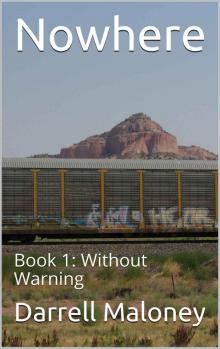 Without Warning
Without Warning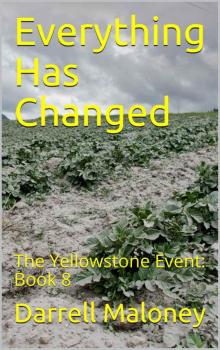 Everything Has Changed
Everything Has Changed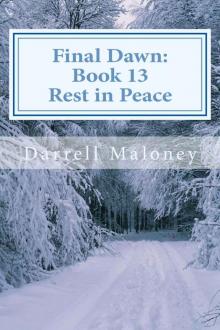 Rest in Peace
Rest in Peace This Changes Everything
This Changes Everything The Final Chapter
The Final Chapter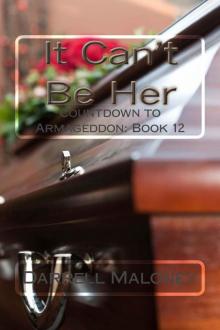 It Can't Be Her
It Can't Be Her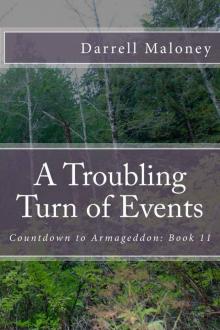 A Troubling Turn of Events
A Troubling Turn of Events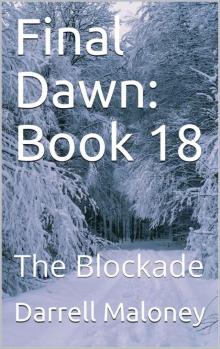 The Blockade
The Blockade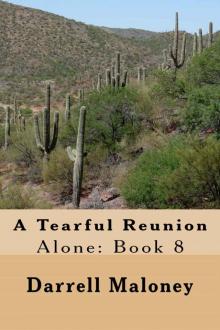 A Tearful Reunion
A Tearful Reunion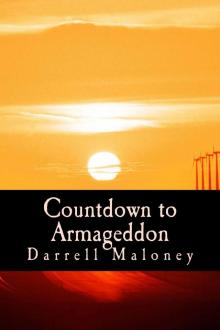 Countdown to Armageddon
Countdown to Armageddon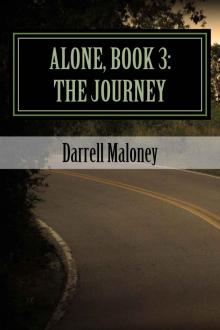 Alone, Book 3: The Journey
Alone, Book 3: The Journey The Army Comes Calling
The Army Comes Calling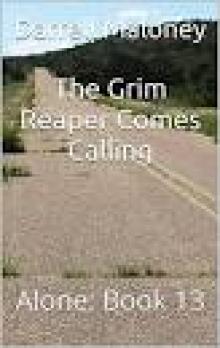 The Grim Reaper Comes Calling
The Grim Reaper Comes Calling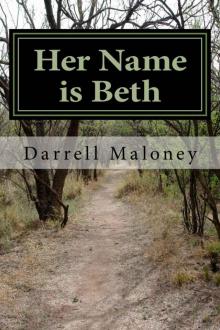 Her Name is Beth: Alone: Book 5
Her Name is Beth: Alone: Book 5 Red: The Adventure Begins
Red: The Adventure Begins Rise From The Ashes: The Rebirth of San Antonio (Countdown to Armageddon Book 3)
Rise From The Ashes: The Rebirth of San Antonio (Countdown to Armageddon Book 3) An Unkind Winter (Alone Book 2)
An Unkind Winter (Alone Book 2)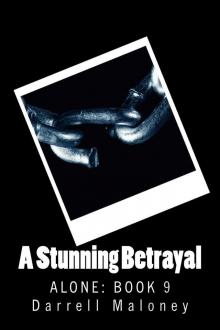 A Stunning Betrayal: Alone: Book 9
A Stunning Betrayal: Alone: Book 9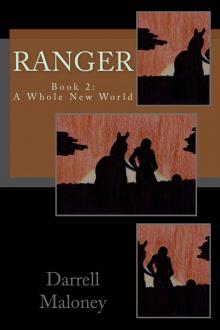 A Whole New World: Ranger: Book 2
A Whole New World: Ranger: Book 2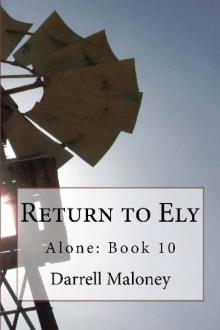 Return To Ely
Return To Ely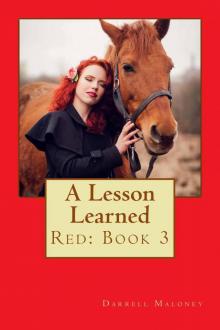 A Lesson Learned: Red: Book 3
A Lesson Learned: Red: Book 3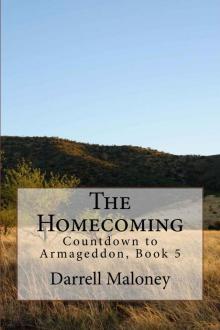 The Homecoming: Countdown to Armageddon: Book 5
The Homecoming: Countdown to Armageddon: Book 5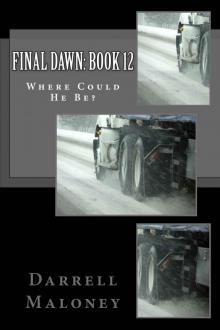 Final Dawn: Book 12: Where Could He Be?
Final Dawn: Book 12: Where Could He Be?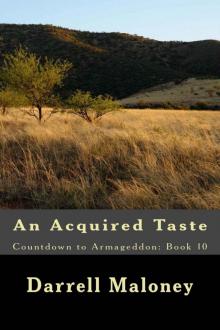 An Acquired Taste
An Acquired Taste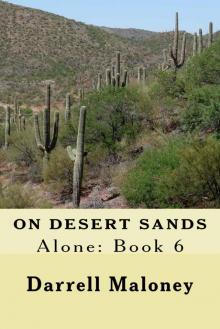 On Desert Sands: Alone: Book 6
On Desert Sands: Alone: Book 6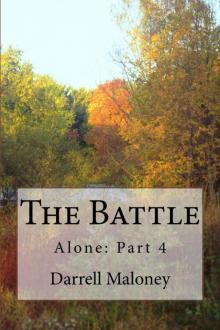 The Battle: Alone: Book 4
The Battle: Alone: Book 4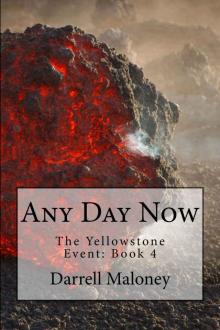 Any Day Now
Any Day Now Too Tough To Tame: Red: Book 2
Too Tough To Tame: Red: Book 2 No Help From Austin: Red: Book 5
No Help From Austin: Red: Book 5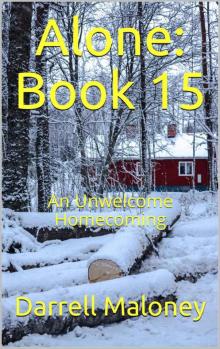 An Unwelcome Homecoming
An Unwelcome Homecoming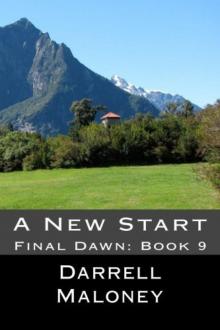 A New Start: Final Dawn: Book 9 (Volume 9)
A New Start: Final Dawn: Book 9 (Volume 9)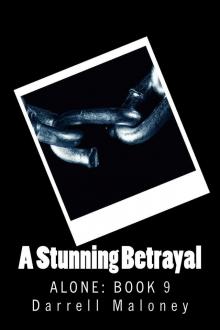 A Stunning Betrayal
A Stunning Betrayal An Undeclared War (Countdown to Armageddon Book 4)
An Undeclared War (Countdown to Armageddon Book 4) One of Our Own: Final Dawn: Book 11
One of Our Own: Final Dawn: Book 11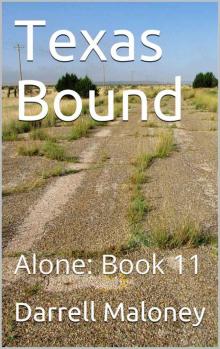 Texas Bound: Alone: Book 11
Texas Bound: Alone: Book 11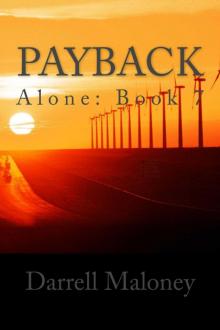 Payback: Alone: Book 7
Payback: Alone: Book 7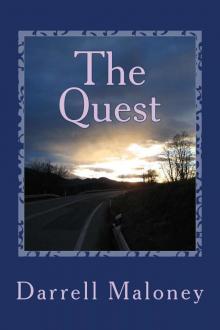 The Quest: Countdown to Armageddon: Book 6
The Quest: Countdown to Armageddon: Book 6 The Siege
The Siege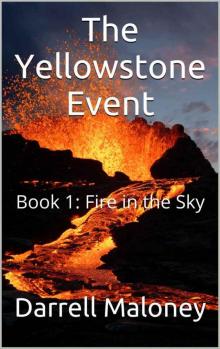 The Yellowstone Event: Book 1: Fire in the Sky
The Yellowstone Event: Book 1: Fire in the Sky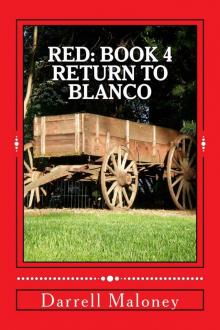 Return to Blanco (Red Book 4)
Return to Blanco (Red Book 4) The Search
The Search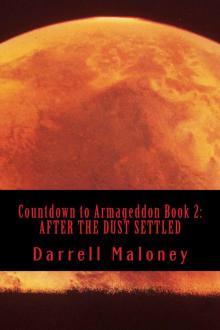 AFTER THE DUST SETTLED (Countdown to Armageddon Book 2)
AFTER THE DUST SETTLED (Countdown to Armageddon Book 2)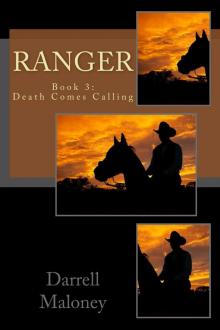 Death Comes Calling (Ranger Book 3)
Death Comes Calling (Ranger Book 3)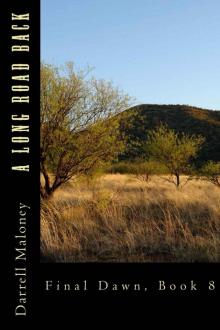 A Long Road Back: Final Dawn: Book 8
A Long Road Back: Final Dawn: Book 8